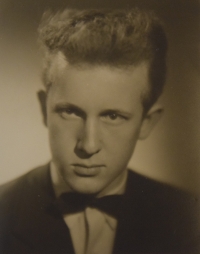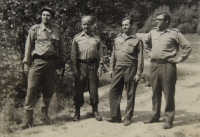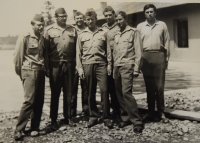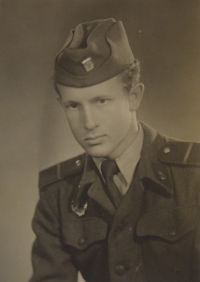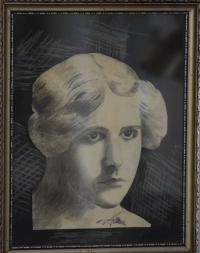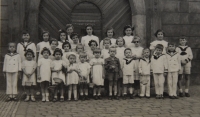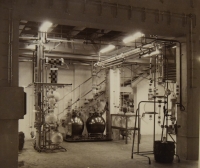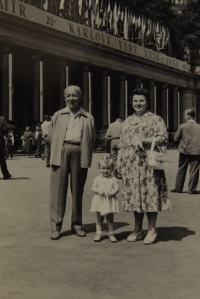We escaped from Karlovy Vary from the Nazis with only a suitcase

Download image
Karel Komers was born on 22 April 1938 in Karlovy Vary in the family of master tailor Josef Komers. His mother, née Woditschková, was of Jewish origin. After the Munich Agreement and the German occupation of the Sudetenland, the family had to flee inland and settled in Prague. Josef Komers refused to divorce his wife and was interned in a camp in Bystřice near Benešov for the husbands of Jewish women. Thanks to this, his mother escaped deportation, but after her husband’s imprisonment she fell ill and died in January 1945. After the war, the widowed Josef Komers and his children returned to Karlovy Vary, where he again ran a tailoring business. However, after February 1948, the tailoring business was nationalised, and for decades Karel Komers had the stigma of incorrect “class origin”. He could not study, he only graduated from the chemical apprenticeship school in Sokolov and the chemical industrial night school. As part of his compulsory military service, he was assigned to the border guards who guarded the Czechoslovak-Hungarian border on the Danube. He worked at the Sokolov chemical plant until 1967, when he found employment at the waterworks in Karlovy Vary-Tuhnice. On the day of the occupation of Czechoslovakia by the Warsaw Pact troops, he solved the difficult situation of the town’s water supply there all by himself. He worked at the Tuhnice waterworks until 1984 and then worked at the newly opened waterworks in Březová, where he remained until his retirement in 2003.
